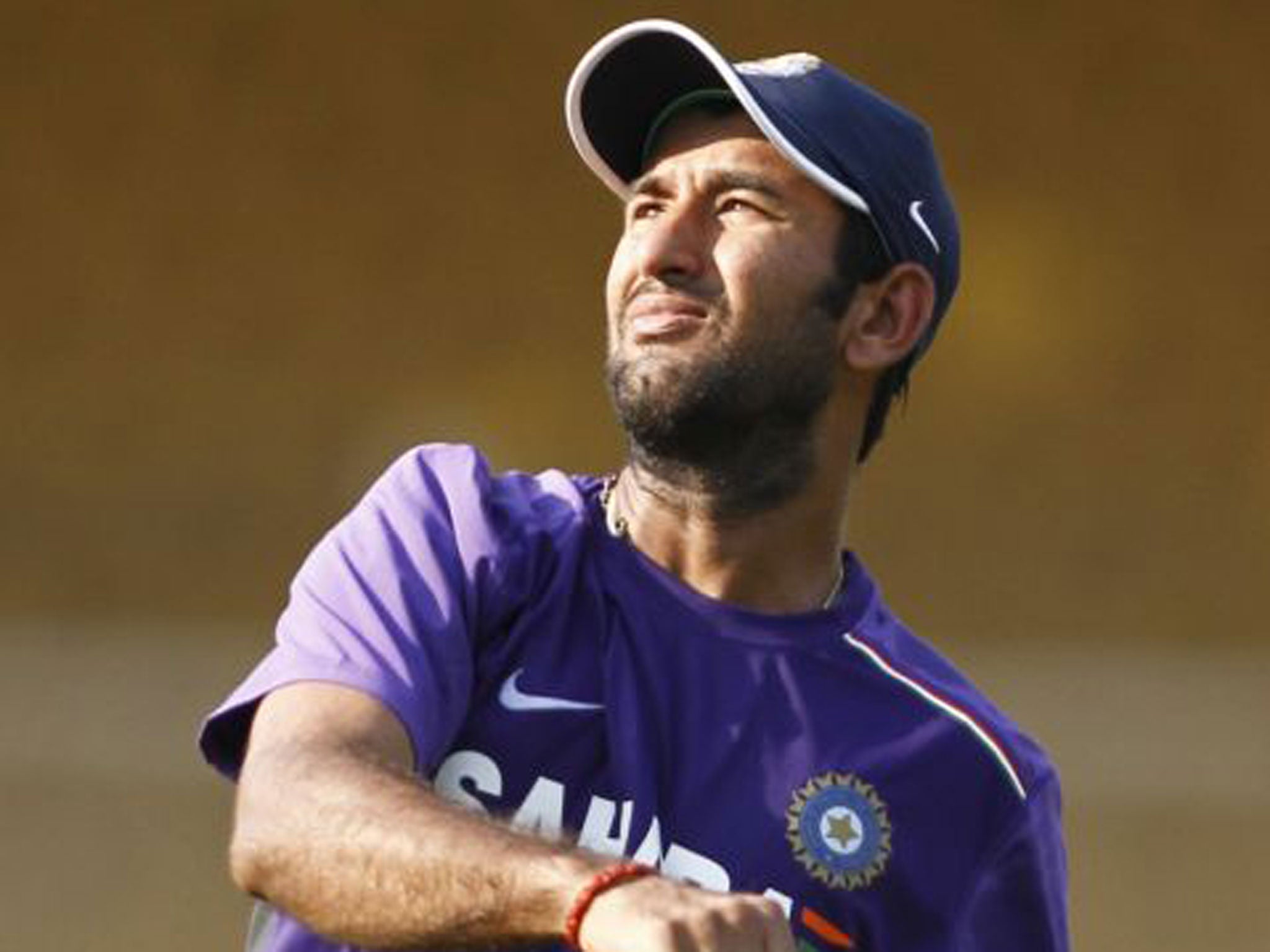The Indian Angle: Cheteshwar Pujara - Loss of his mother made our new hero immune to pressure

Your support helps us to tell the story
From reproductive rights to climate change to Big Tech, The Independent is on the ground when the story is developing. Whether it's investigating the financials of Elon Musk's pro-Trump PAC or producing our latest documentary, 'The A Word', which shines a light on the American women fighting for reproductive rights, we know how important it is to parse out the facts from the messaging.
At such a critical moment in US history, we need reporters on the ground. Your donation allows us to keep sending journalists to speak to both sides of the story.
The Independent is trusted by Americans across the entire political spectrum. And unlike many other quality news outlets, we choose not to lock Americans out of our reporting and analysis with paywalls. We believe quality journalism should be available to everyone, paid for by those who can afford it.
Your support makes all the difference.When Cheteshwar Pujara, the man who has taken Rahul Dravid's coveted No 3 spot in the India Test line-up, was on 199, facing Graeme Swann, the field changed dramatically.
Every available fielder was posted on the off side and Alastair Cook at gully was so close to the nearest man that he could have shaken hands. With the largest and most voluble crowd he has ever played in front of roaring in anticipation, Pujara opened the face of his well-worn bat to thread the needle, trotting to the other end to begin a most well-behaved celebration.
England's intentions in crowding Pujara, upping the ante at a pressure moment, were well intentioned, but then they would not have known that Pujara, just 24 years and six Tests old, had already stared life in the face and refused to blink.
When only 17, Pujara was forced to deal with the news that his mother, Rinaben, had lost her battle with cancer. Only five days later, Pujara was due to play in an under-19 match for Saurashtra and cricket was the last thing on the vulnerable teenager's mind at the time. However, he was convinced to go out and bat by his father, Arvind, himself a first-class cricketer, and, in a match that meant everything, scored his first century. He has not looked back since.
There is an inevitability about the manner in which Pujara makes his runs that has not been seen on the domestic circuit since Dravid made his debut. Pujara builds innings brick by brick, the old-fashioned way. He tries nothing fancy, plays no special shots, but the manner in which he does the ordinary things, the purposeful nature that underpins every stroke he plays make comparisons with Dravid inevitable.
For years, Dravid lived in the shadow of more obviously gifted players, not least Sachin Tendulkar and the inimitable VVS Laxman. But the coming and going of Dravid has taught the Indian public the value of someone who can be counted on to deliver, and Pujara is already held in high esteem in the India dressing room.
At a time when millions follow those who smash sixes in the Indian Premier League, and advertising dollars chase brash young men with tattoos and earrings, Pujara is a Test cricketer in the purest sense. His value is defined by the runs he makes and the matches that these help win.
In first-class cricket, bowlers rue the days when Pujara goes past 100, for he then makes them pay severely. Of his 16 first-class centuries, nine have been 150 or more, with three double hundreds and a triple century in the mix.
"I never like to get out. There's always a price on my wicket," said Pujara, with a twinkle in his eye that belied the effort of spending nearly eight and a half hours out in the middle against England. "Even after scoring a double hundred I never wanted to give away my wicket. That's the reason why I'm able to score big runs." The explanation, just like Pujara's method with bat in hand, is remarkably simple: he does not try to over-think things or complicate matters any more than is needed.
In this, he is different from Dravid, who was a veteran at self-examination and occasionally tied himself in knots brooding about a certain aspect of the game. At the moment, Pujara is enjoying keeping his mind uncluttered, a luxury afforded to batsmen at the top of their game and making runs at will.
Naturally, sterner tests await Pujara when he learns to counter the moving ball in England or the bounce of harder pitches in South Africa and Australia. Already, though, he has shown a hunger for runs and an appetite for hard work that ensure that he makes the most of the talent he was born with. Few captains or coaches will ask for more than that.
Anand Vasu is managing editor of Wisden India (www.wisdenindia.com).
Join our commenting forum
Join thought-provoking conversations, follow other Independent readers and see their replies
Comments